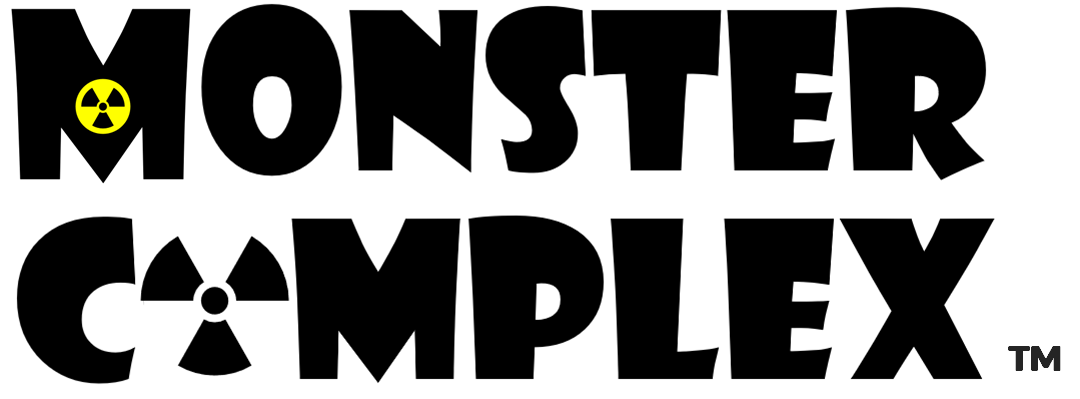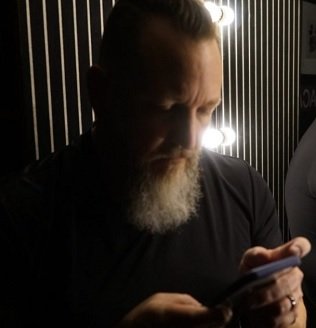Q&A: David Scott Hay on [NSFW]: “Horror for me is having something you love being torn away and being powerless to stop it.”
The author talks about his experimental horror-lit set in the near future about connection and isolation.
Author David Scott Hay shares unique spin on writing horror fiction, reveals what in his background inspires him, and reveals his pet peeves in others’ horror stories.
Today, Monster Complex talks to horror author David Scott Hay about his novel featuring a group of content moderators exploring their humanity in this “near-future, SF love story.” Kirkus Reviews calls the book “A potential cult classic that all but demands a second read.” [K] David Scott Hay (DSH) is an award-winning playwright, screenwriter, and novelist.
Table of Contents
Monster Complex uses Amazon affiliate links.
About the book [NSFW]
About the book
[NSFW]
An experimental horror-lit set in the near future about connection and isolation.
The Office meets A Clockwork Orange.
Set in the world of social media moderators, @Sa>ag3 and @Jun1p3r must survive their first 90 days to qualify for benefits and a life-changing mystery bonus. As they flag a nonstop torrent of the most heinous [NSFW] videos, their coping mechanisms expand to include on-the-job sex, drugs, and a jellyfish.
But when copium is no longer an option, @Sa>ag3 & @Jun1p3r turn to a more bizarre form of therapy: intimacy. Meanwhile a stream of ominous warning videos keeps popping up... COMING SOON... hinting at an event that will alter the American landscape.
@Sa>ag3 & @Jun1p3r are on the digital front line with their finger on the DELETE button. Will love survive in this new age?
[NSFW]
David Scott Hay
Whiskey Tit
Categories: Psychological Fiction, Horror Literature & Fiction, Literary Fiction
About the author
David Scott Hay
DSH makes a mean old fashioned and the best ribs on the block. He’s originally from OKC and lost the tip of a finger in a chop saw incident in the Windy City on his way to the City of Angels. He is an award-winning playwright and screenwriter. As a novelist he is a 2 x Kirkus Prize Nominee.
His previous novel, the satire The Fountain, was published in March ’22. It has been translated into Russian and released by Polyandria NoAge.
“A passionate mediation on art wrapped in a hilarious sendup of artistic pretentions.”
—Kirkus Reviews (starred review)
When not city hopping to sell books, DSH lives in a valley between the ocean, the mountains, and the desert with his wife, son, dog, chickens, and a dozen typewriters.
Interview
Interview
David Scott Hay talks about his novel [NSFW]
Q: How do you explain your unique spin on horror fiction?
Accident. I didn’t set out to write a horror novel. I set out to explore a satirical what-if and to play with a different structure (think mosaic) inspired by Jenny Offill’s writing. And the what-if, once it got traction, easily led me to the horror novel, though I’ve since been educated that it’s more slipstream than horror (though with plenty of existential dread).
There’s a very fine line between clever and stupid and I hope I’ve ended up on the correct side of the line. The structure has been called a novel in fragments. The labels change as experimental books edge their way into the mainstream.
Q: What inspired you to go in this direction?
Thematically: anger, frustration, rage… though I supposed that came later. Curiosity, initially, and self-reflection. I set out to write my thoughts on different subjects as opposed to dropping bumper sticker comments in a war with the bots. Basically, bar stories. Anecdotes. Vignettes. The original idea was to set it in a bar with a narrative throughline. Honestly, I didn’t have the story /structure vehicle I wanted and the initial premise (which I unearthed from the old files) lacked urgency.
Cut to 30K words later and I started reading stories of social media moderators losing their minds and thought bingo: a satirical meet-cute workplace romance. Everything I want to play with is in that situation so I dropped 15K and started working it over from page one and thus.
But the deeper I got, the deeper I felt the frustration and anger of these characters, the more it reflected in the writing. Also, I was writing about characters who choose to self-isolate when the world locked-down. So my escapism of writing was thwarted until my publisher asked how the writing as coming, so I soldiered on.
What’s funny to me is a well-known horror reviewer said it got too angry and she had to walk away. Which I find ironic that violence was welcome but not the emotional component attached to violent trauma. But perhaps we register national trauma (ie school shootings) differently (she lives in another country).
Q: When and how did you become interested in writing your brand of horror stories?
I would say that the classic Universal monster movies genre became a touchstone for me. Are you the scientist or the creature? Who created whom, kinda thing. Living with the curse. Forbidden love, etc. The green on the cover is my nod to Frankenstein and the book is quoted several times within [NSFW].
Q: What are your favorite things about the section of the genre you occupy?
Speculative / slipstream the ability or attempt to see the future. I’m reading short stories from the ’60s that are nailing what life is like today. PKD and Ballard. Other stories, you can see where we could have forked over into that reality. So much fun in extrapolation, but rarely does it end up with a happy ending.
Also, as I read more and more horror, I’m discovering that horror for me is having something you love being torn away and being powerless to stop it. That discovery is widening what I consider be excellent horror writing. As a friend of mine in Hollywood said, it’s all how you pitch it.
Q: What are your “horror story” pet peeves that you’ve seen others do?
Recycled dialogue or phrases. How can you, I can’t believe, so let me get this straight, or the tack-on: you’re reading a great story and boom here’s a monster reveal and ambiguous ending. The story makes no choice, doesn’t offer the reader a compelling dramatic choice or doesn’t play fair with clues.
The Cabin at the End of the World did a great job of this and though the movie adaptation Knock at the Cabin changed it, the core emotional choice was still there. Both were compelling.
Q: What do YOU look for in a good horror story?
A new spin on an old idea (see above). How many times have you watched a story go off the rails and had a better idea. Oh, I would have done it like X instead of Y. And sometimes that’s enough to spark an idea.
A story that can stand alone from the horror elements, but not be too shiny. Descent is a great example of balance. Monster, the movie, could have / should have been a love story about two misfits. Once it turned to the serial killer sequences, I mourned the first half of the movie and not in a good way. The drama of the relationship was more compelling than the revenge angle.
I love fresh prose, turn of phrases and dialogue that is not on the nose and hasn’t been recycled a thousand time.
And of course, I crave an emotional element, something to connect with, a or cool style I haven’t seen before. I read a nice short story last year that so pin-pointed the Covid fog of parenting, it was unnerving.
Q: What advice do you have for other authors who want to get their writing out to readers?
Take a class, read a book, study the craft. Keep grinding. Keep experimenting. Invest in yourself. I started a theatre company, and that is how I got my work in front of an audience. You learn quickly what works and what doesn’t. You learn what works on the page and what fails on the stage and vice versa.
I’ve seen so many amateurs shit on studying the craft, to get true feedback on one’s work. They are not serious about a career, about readers, about personal growth. People don’t want to be told its hard work. Everyone wants to hit a grand slam their first time at bat.
Find a mentor. It will save you years of trial and error and networking. I’ve never had a true mentor, but when I have access to folks better than I, further along in their careers, I make sure to listen and ask questions. I learned to pitch better. I learned some global truths about different aspect of the business you will not find in public writing.
Again: Invest in yourself. Here are the two best things I’ve done from my laptop:
I bought a Kirkus review and crossed my fingers. That starred review landed me a foreign publishing contract and they just made an offer for my second book. Now folks will say you should never pay for reviews, but when authors at the Big 5 are paying for indie reviews because marketing isn’t covering it for them, then its legit. Also, you may not get a good review. I’ve seen that, too.
The other thing is to make an announcement in Publisher’s Marketplace. I’ve gotten requests from production companies, agencies, and foreign publishers to look at ARCs. I’ve known screenwriters out here for over a decade that don’t get that kind of attention.
Bonus: third thing—go to bookfairs with your publisher, meet folks, practice your pitch, be nice. Word of mouth is your ally.
Q: What are the best ways for fans to keep track of what you're writing (and related author news about you)?
Davidscotthay.com or David.scott.hay.official on IG.
More about the author
Find out more about David Scott Hay online
More interviews from Monster Complex
Related links
More author interviews from Monster Complex
C.L. Bauer: Author Q&A—“Ghosts can do just about anything, right?”
Charlaine Harris Q&A + True Blood / Sookie Stackhouse Books In Order
Zombie Q&A—Jonathan Maberry: “Zombie Stories Are Not About Zombies”
Kendare Blake Q&A: ‘In Every Generation’ Revisits Buffy the Vampire Slayer
Zombie Q&A—Isaac Marion: “George Romero tried to touch on the humanity of the zombies.”
D.M. Guay: comedy horror author Q&A—“My goal is to hope like hell it will make readers laugh.”
Panel: Black Women Who Write Dark Fiction and Poetry [Video]
Laurell K. Hamilton Q&A + Anita Blake, Vampire Hunter Books In Order
More great horror fiction articles on Monster Complex



